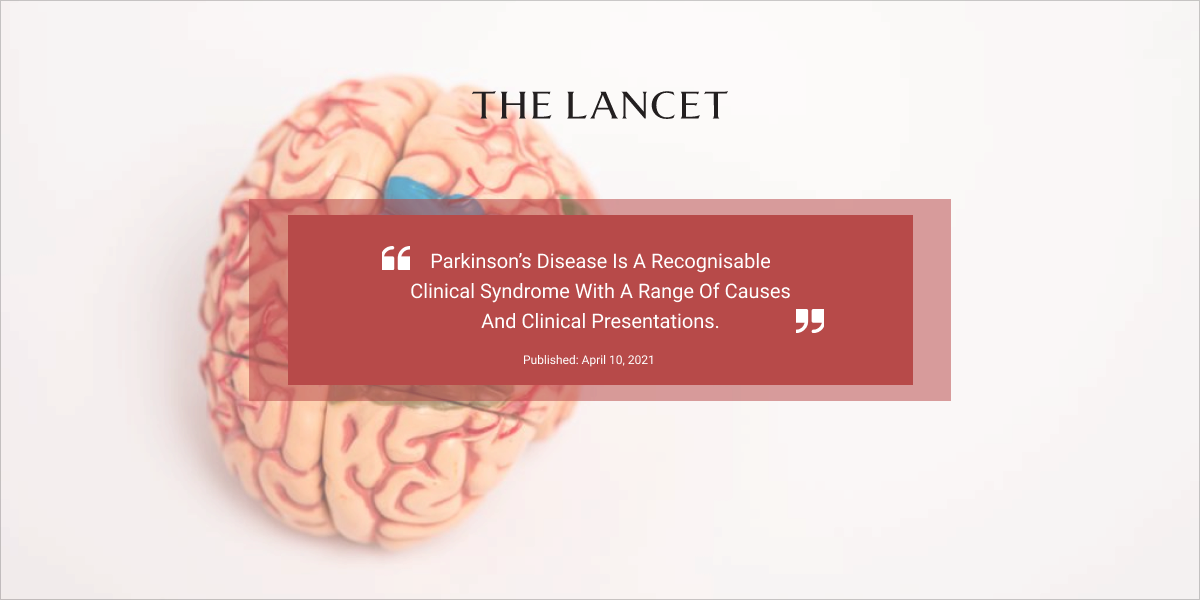Parkinson’s disease is a recognisable clinical syndrome with a range of causes and clinical presentations.

Parkinson’s disease
Parkinson’s disease is a recognisable clinical syndrome with a range of causes and clinical presentations. Parkinson’s disease represents a fast-growing neurodegenerative condition; the rising prevalence worldwide resembles the many characteristics typically observed during a pandemic, except for an infectious cause. In most populations, 3–5% of Parkinson’s disease is explained by genetic causes linked to known Parkinson’s disease genes, thus representing monogenic Parkinson’s disease, whereas 90 genetic risk variants collectively explain 16–36% of the heritable risk of non-monogenic Parkinson’s disease. Additional causal associations include having a relative with Parkinson’s disease or tremor, constipation, and being a non-smoker, each at least doubling the risk of Parkinson’s disease. The diagnosis is clinically based; ancillary testing is reserved for people with an atypical presentation. Current criteria define Parkinson’s disease as the presence of bradykinesia combined with either rest tremor, rigidity, or both. However, the clinical presentation is multifaceted and includes many non-motor symptoms. Prognostic counselling is guided by awareness of disease subtypes. Clinically manifest Parkinson’s disease is preceded by a potentially long prodromal period. Presently, establishment of prodromal symptoms has no clinical implications other than symptom suppression, although recognition of prodromal parkinsonism will probably have consequences when disease-modifying treatments become available. Treatment goals vary from person to person, emphasising the need for personalised management. There is no reason to postpone symptomatic treatment in people developing disability due to Parkinson’s disease. Levodopa is the most common medication used as first-line therapy. Optimal management should start at diagnosis and requires a multidisciplinary team approach, including a growing repertoire of non-pharmacological interventions. At present, no therapy can slow down or arrest the progression of Parkinson’s disease, but informed by new insights in genetic causes and mechanisms of neuronal death, several promising strategies are being tested for disease-modifying potential. With the perspective of people with Parkinson’s disease as a so-called red thread throughout this Seminar, we will show how personalised management of Parkinson’s disease can be optimised.
© 2021 Elsevier Ltd. All rights reserved.

